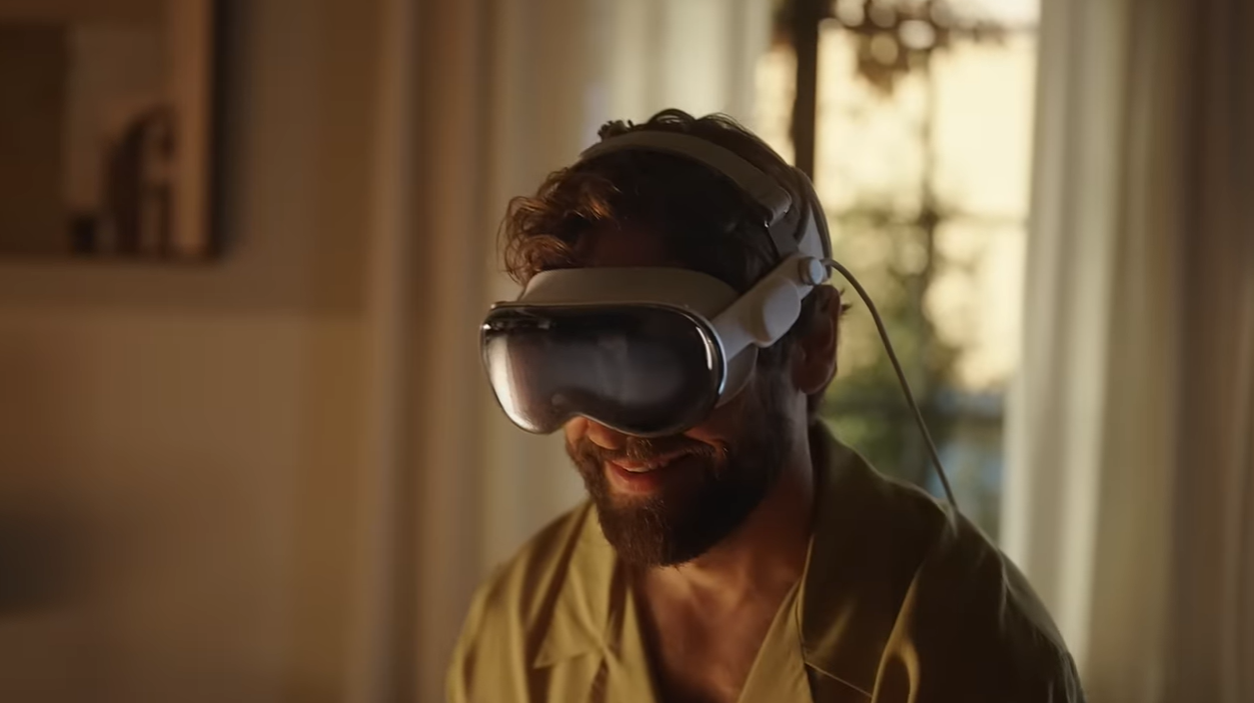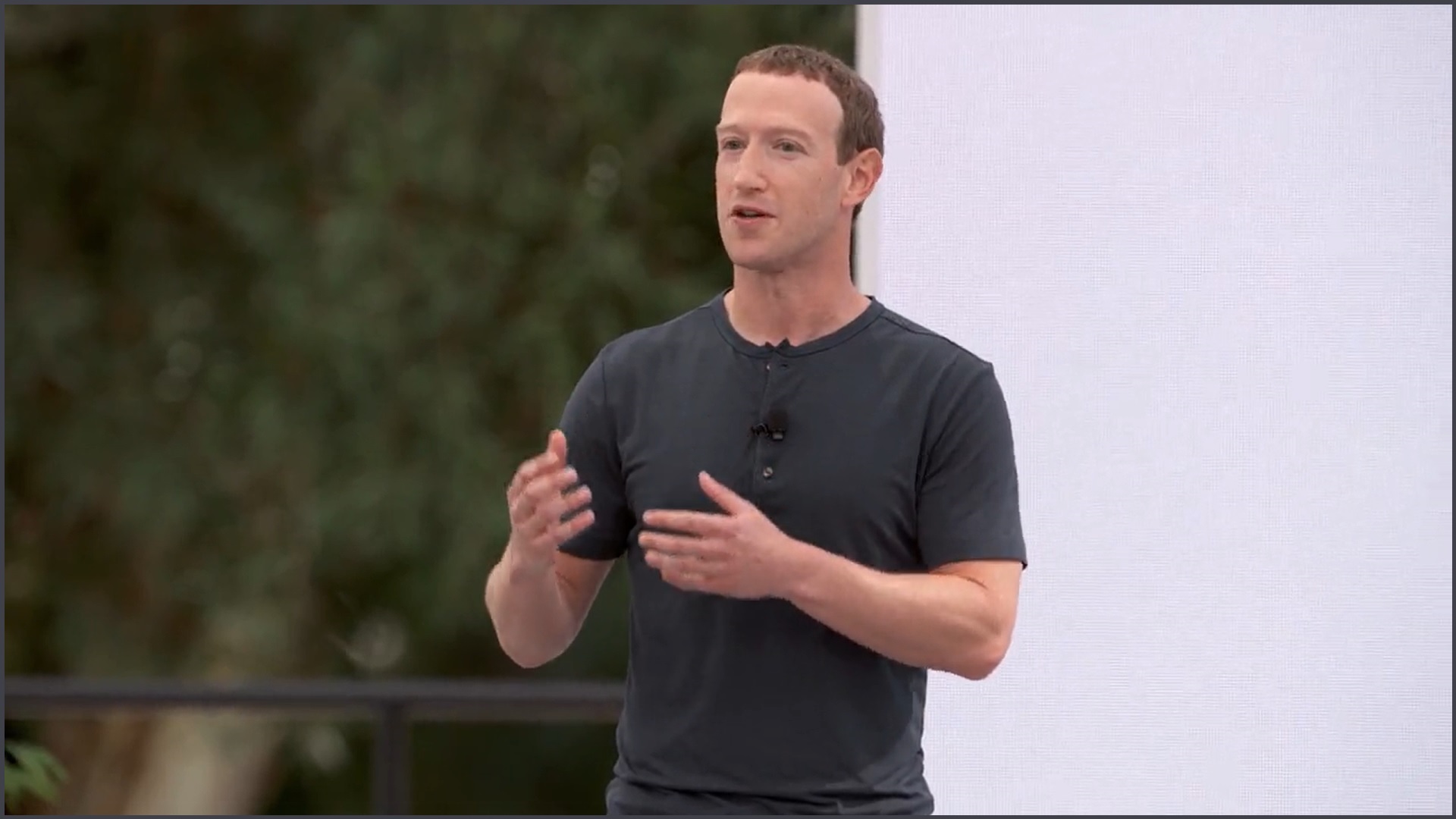Mark Zuckerberg wants us to replace all our physical objects with interactive holograms and to invite AI avatars into our friendship circles and workplaces. This is the metaverse.
Zuckerberg outlined his grand plan on Thursday morning as part of Meta Connect, his company’s yearly conference that is taking place in person this week for the first time since 2019.
In his opening address, Zuckerberg spoke of the two realities people inhabit today: the physical world – which he said is “amazing”, by the way – and a digital world filled with “content”.
Over time, the ‘real world’ has become “a combination of the physical world we inhabit and this digital world that we’re building”.
“I think that one of the most interesting questions for our industry over the coming decades is going to be ‘how do we unify these experiences?’”
Zuckerberg then went into his idea for a world where physical reality, its objects and inhabitants, becomes superfluous.
“In the future, I think not too far from now, you’re going to walk into a room and there are going to be as many holograms of digital things for you to interact with as there are physical objects,” he said.
“Think about all the things that are physically there that don’t need to be physical things – all the paper, the media, the games, the art, your workstation, any screen. It can all be interactive holograms.”
Meta’s CEO goes on to extend this principle to other humans. When you hang out with your friends, some of them will be there, some will be avatars; when you sit around a meeting room, some of your colleagues will be there, others will appear as holograms.
Everyone will feel “just as present as everyone else”, Zuckerberg claims. And it won’t just be avatars of other people, either – there will also be “a bunch of AIs who are embodied as holograms who are helping you get stuff done, too”.
As remarkable as this may be, I can’t help but imagine how it will feel to take off a headset and be confronted with a decaying physical reality abandoned for the world inhabited by AI avatars: empty homes, blank walls, and the dust of the past.
Going Meta
Back in 2021, Zuckerberg changed Facebook’s name to Meta.
This re-brand wasn’t just about laundering the company’s tainted image, although that was undoubtedly part of it, so much as it was a signal that Facebook was moving its primary focus away from social media advertising.
Meta was going to become a hardware company.
In the intervening years, Meta has poured a fortune into research and development of its virtual reality headsets and smart glasses.
Reality Labs, the division tasked with making Zuckerberg’s metaverse dreams come true, posted a US$7.7 billion loss in the first six months of 2023 alone, according to the company’s financial statements.
Meta had already spent a cumulative US$36 billion on the project by October last year.
As it turns out, mixed reality – the idea of overlaying the physical world with digital objects – is a serious technical challenge, not least of all because it requires squeezing low-latency, hi-fidelity hardware onto a device that is light enough, comfortable enough, and cool enough for people to wear on their faces.
Apple, which has been a hardware company for more than a couple of years, is working on a similar device called the Vision Pro which will be released next year for an unreal US$3,499.
The introduction video for the Vision Pro has one of the strangest moments in consumer tech history.
Apple’s headset has a 3D camera to record ultra immersive videos and the way it showed that off was with a scene in which a father watches his children play together while wearing his headset.
The man kneels in front of them, smiles, and presses record on his headset.
Of course, technology – especially the ubiquitous smart phone camera – has been increasingly mediating our realities for decades, but there is something striking about this scene.
In the reverse shot we get a glimpse at what the man’s children would see when they look up at their dad and, instead of seeing his loving eyes as he commits the moment to memory, they get to stare at an expensive piece of head hardware designed by Apple in California.
Reality has always been free. Do we really want to cede control of it to a handful of Silicon Valley executives for the sake of convenience, productivity, and “vibrant digital content”? Of course not.











